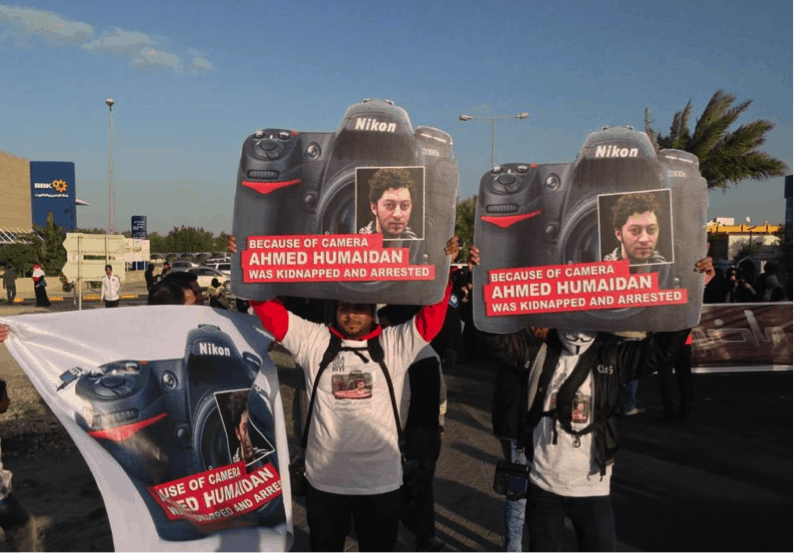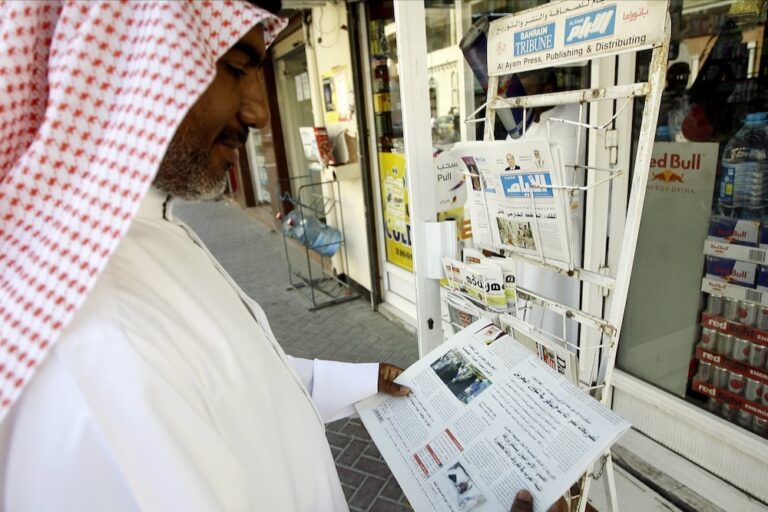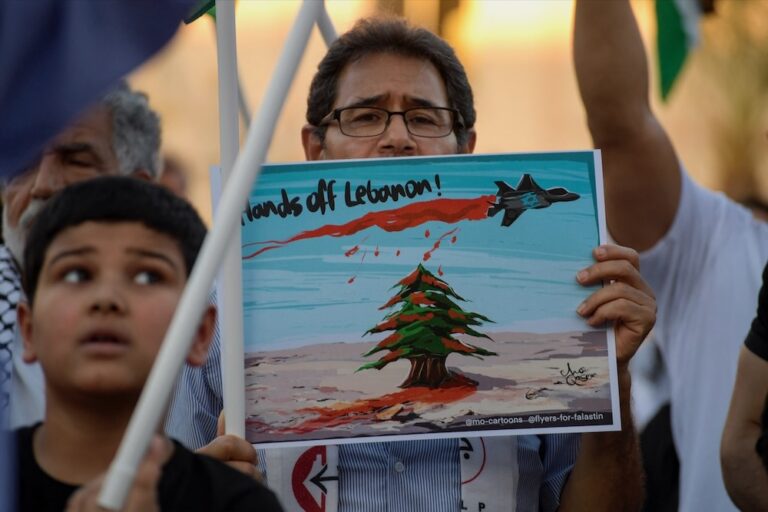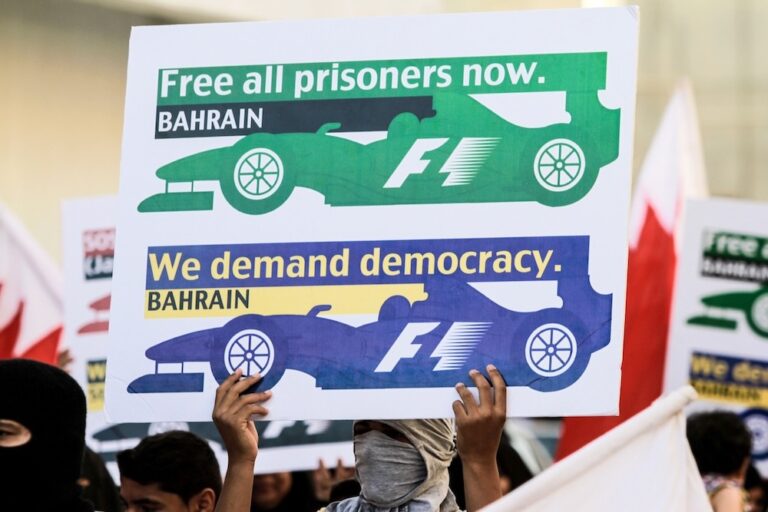Bahraini photojournalist Ahmed Humaidan, who was kidnapped and detained in late December 2012, was recently subjected to psychological torture while being interrogated and was forced to confess to a crime he claims he did not commit.
(BCHR/IFEX) – 19 January 2013 – The Bahrain Center for Human Rights (BCHR) expresses its grave concern over the escalated use of torture against journalists by the authorities in Bahrain. BCHR received concerning reports regarding the well-being of 25-year-old photojournalist Ahmed Humaidan who was kidnapped by 15 security officers, in civilian clothing, on 29 December 2012.
Humaidan’s family stated that he was subjected to psychological torture, which they believe lead him to mentally breakdown. According to his family, Humaidan was forced to stand up for hours while being handcuffed and blindfolded in a very cold room. He informed his family that while he was in blindfolds and handcuffs at the Criminal Investigation Department (CID), they forced him to hold an unknown object and interrogators told him that it was a time bomb set to explode. The unknown object was in his hands for hours. He was constantly monitored during this time, and was screamed at if he moved so much as a finger.
Furthermore, Humaidan informed his family that while being interrogated and forced to confess to a crime that he claims he did not commit, interrogators threatened him that they will accuse his brothers of crimes if he did not confess. The interrogators named his brothers and randomly selected charges that they would arbitrarily bring against them.
The Bahrain Independent Commission of Inquiry (BICI) report from November 2011 documented that similar death threats and psychological torture techniques were widely employed during interrogation sessions. This is a clear indication that the authorities have failed to reform their methods of interrogation. Another example of such psychological torture is documented in the BICI report where it states that:
“On 8 May, the detainee went to court and was cursed and sexually harassed in the car on the way there. He was taken to a side of the court reserved for “executions”. A guard said to him, “It has been a long time since we executed anyone.”
Prior to his arrest, Humaidan was in hiding after he received news in April 2012 that he was being accused of charges of which he claims he is innocent. Some of those charges include “demonstrating illegally” and “using violence to assault police and damage public properties” during the demonstrations in the Sitra province.
His family responded by stating: “Ahmed is a well-known photographer and a member of a number of societies; he doesn’t wear a mask or hide his identity while taking photos because he believes he has the right to practice his work of documenting and his passion for photography.”
Ahmed’s family described the 9 months that he was targeted by the authorities as a nightmare. Masked policemen raided his family home on five separate occasions, mostly between midnight and dawn. Then police also began raiding his relatives’ homes, such as his grandfather and his uncles, in their search for him. For weeks, Ahmed’s family did not hear any news from him and did not know where he slept or lived. Subsequently, he was fired from his job.
Humaidan was denied access to his lawyer, although as of 19 January, his lawyer is now present during interrogation. He was scheduled to meet with his lawyer in court on 17 January 2012, but the prison authorities did not transport him to the meeting.
BCHR believes that the arbitrary arrest of Humaidan is solely related to his legitimate work as a photographer and his activity in documenting protests and police attacks, which has led to exposing the severe human rights violations by the authorities in Bahrain.
BCHR demands:
• the immediate intervention of the international community, human rights groups and the United Nations to put an end to the arbitrary arrests and brutal torture practices employed by Bahrain’s Security Forces;
• for the Bahraini authorities to release photographer Ahmed Humaidan, and other detainees imprisoned for their views and their peaceful work as observers of demonstrations, immediately and unconditionally;
• for the Bahraini government to allow the practice of freedom of expression without being targeted for physical and judicial harassment.



